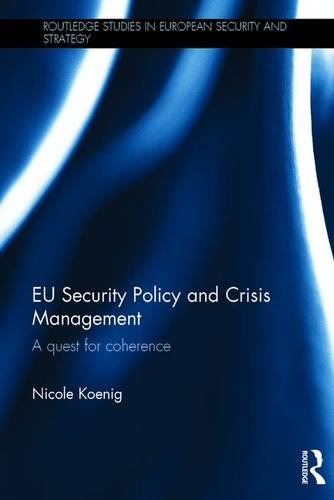

Most ebook files are in PDF format, so you can easily read them using various software such as Foxit Reader or directly on the Google Chrome browser.
Some ebook files are released by publishers in other formats such as .awz, .mobi, .epub, .fb2, etc. You may need to install specific software to read these formats on mobile/PC, such as Calibre.
Please read the tutorial at this link: https://ebookbell.com/faq
We offer FREE conversion to the popular formats you request; however, this may take some time. Therefore, right after payment, please email us, and we will try to provide the service as quickly as possible.
For some exceptional file formats or broken links (if any), please refrain from opening any disputes. Instead, email us first, and we will try to assist within a maximum of 6 hours.
EbookBell Team

4.8
94 reviewsThis book explores European Union crisis management and draws implications for its role as an international security actor.
The success of EU crisis management has varied greatly and this book aims to identify the key factors that explain the differing degrees of coherence through a comparative analysis of its multidimensional crisis responses in Africa. The empirical focus lies on three prominent EU crisis management cases, namely Libya in 2011, Somalia in 2011-2012, and the Sahel in 2012-2013. It analyses the activities and interaction of EU institutional actors and member states, with a focus on France, the United Kingdom, and Germany. The book argues that the EU represents a rather unpredictable security actor, whose multi-level coherence is contingent on the congruence of domestic economic and electoral interests, as well as national threat perceptions, and the extent to which EU-level coherence norms resonate with national norms on the use of force and modes of multilateral cooperation. In sum, this book offers systematic insight into EU crisis management and clarifies the conceptual and empirical boundaries of the comprehensive approach. Finally, the study of the micro-foundations of coherence allows for policy-relevant suggestions on the EU’s future role as a security actor.
This book will be of much interest to students of EU policy, European Security, Peace and Conflict Studies, African Politics and IR in general.